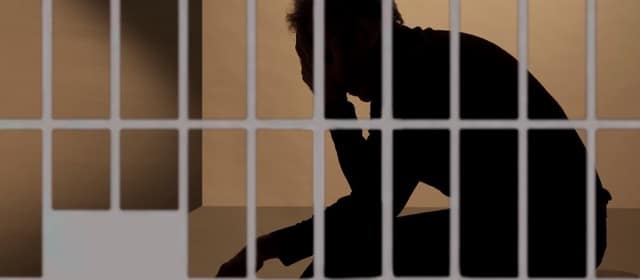Does a felony affect child custody? The short answer is: Yes, of course it can, but not always. A number of factors come into play when a party involved in a custody case has been convicted of or charged with a felony. Some of the factors judges will consider include when the felony occurred, what type of crime was committed, whether or not the party has been convicted of a felony and what knowledge the other parent had of the party’s felony history.
Whether you’re a dad who wants to know can a father get joint custody if he has a criminal record (possibly) or someone who is wondering can I lose custody of my child for dating a felon (also possibly), all of these factors (and others) will need to be unpacked before a judge can rule in your case.
It’s also important to note that different states have different laws pertaining to child custody when a parent or parents have felony convictions and/or pending felony charges. However, one area where all states generally agree is that custody decisions should be based on what is in the best interest of the child.
How Texas deals with felony charges and child custody
Just because someone has been charged with a felony doesn’t mean they will be convicted or they are a bad person. That person remains innocent until proven guilty, and depending on the circumstances, may still be allowed to maintain custody, visitation and access to their child during a custody case.
When it comes to parents who have been convicted of or charged with a felony, The Sisemore Law Firm’s Fort Worth, Texas child custody lawyers have represented parents on both sides. During a SAPCR (suit affecting the parent-child relationship), the first questions we know most Texas judges will want to be answered include:
- What was the nature of the felony in question?
- When did the alleged felony or felony conviction occur?
Can a convicted felon have custody of a child in Texas?
If a parent has been convicted for stealing, writing bad checks, fraud or other felonies in that realm, those types of offenses might not jeopardize a parent’s custody case. So, the answer to the question can a felon get custody of a child? OR can a child live with a convicted felon? may very well be “yes” in situations where the crimes didn’t endanger the child.
On the other hand, if the felony involves something like child endangerment, assault, domestic violence or a parent getting a third DWI (felony territory), offenses of that nature would absolutely affect the judge’s decision about custody because children need to be protected.
Texas is also very clear when it comes to recent family violence convictions. If a parent was convicted of any crime involving family violence within the two years preceding the case being filed in Texas, the judge cannot make that parent a joint managing conservator per Texas law.
Does a felony affect child custody if it’s ancient history?
In regard to the timing of the felony conviction, did it occur one year, five years or 10 years ago? Judges tend to be less likely to restrict a parent’s custody and visitation rights if a felony conviction occurred some time ago.
For example, if a parent was convicted of a drug charge when they were a teen, and now they’re 25 and have had a clean record since there’s a good chance that an old conviction won’t be held against them. However, if a parent has a felony DUI or drug offense from 10 years ago but proof exists they are still drinking or using drugs. That recent history combined with the ancient history could affect child custody and visitation.
Judges will also want to know when the parent trying to restrict custody first learned about the crime in question. Did the felony occur several years before they met the person with the felony conviction, and did they know about the felony and still decide to have a child with that person anyway? That’s a situation where the judge might say, “Well, you decided to have a child with this person who you knew had a felony, so why are you trying to use it against them now?”
The point being, if the parent knew about the felony but didn’t have an issue with it until recently, their complaint may not compel a judge to restrict the other parent’s custody, visitation and access to a child.
Can I lose custody of my child for dating a felon?
Again, it’s going to depend on when the felony occurred and what type of felony was involved. If the person you’re dating was convicted of fraud 10 years ago and has been living like a model citizen since then, you probably won’t lose custody. But if they were convicted of a crime against children, sexual assault or a felony DWI (and they are still drinking and driving your kids around), that’s going to be a huge problem for you, and you could lose custody for dating a felon.
Now, if you’re dating someone convicted of felony DWI, the judge probably won’t forbid you from having that person around your kids, but the judge may say, “This person can’t drive with the kids because they have had too many DWIs.”
Or if the person has a felony for drugs and there is a concern that drug use is still occurring, the judge might say, “I don’t trust this situation. You’ll need to keep that person away from your kids unless they can prove they’re not on drugs.” Now, the judge can’t order that person to take a drug test (because they are a third party) but that person will need to prove they’ve passed a drug test in order for the judge to allow you to have them around your children.
Could you simply not tell the other parent about your love interest’s past? That could get you in hot water, too. In Texas, most final custody orders include a standard provision that states if you’re residing with a felon or a sex offender or someone who has been the basis of a protective order, you have to tell the other parent. If you don’t, you will be violating your orders and could be held in contempt, and worse, lose custody of your kids.
What to do when pending criminal charges and child custody cases coincide
It’s important to hire a family law attorney who understands how to navigate the complex issues that arise when unresolved felony charges and child custody suits are going on at the same time. This is true whether you’ve been accused of a crime or you’re trying to protect your children from someone who has been.
For example, some parents wonder can you deny visitation if parent has warrants out against them? If you have existing custody orders in place, a reputable family law attorney won’t tell you to violate those orders by denying visitation. However, what I would generally say in that situation would be, “If you feel your child is in danger (or the warrant pertains to negligence or a crime inflicted upon a child) you need to do whatever you feel is right. But I would highly recommend calling the police or calling CPS, if you’re going to deny access.”
As a child custody attorney, I would also advise a client who tells me they have been physically abused to contact the police. That’s because the situation has likely come to a point where we need to decide whether the offense merits filing for a protective order.
On the other side of the coin, our firm has represented clients accused of felony charges and child custody matters are pending at the same time. We’ve found it’s critical in such cases to work closely with the client’s criminal attorney to help ensure the client doesn’t say anything in the family courts that can be used against them in the criminal courts.
Our law firm even has a criminal attorney working with our office who we consult on such matters. That insight is invaluable because we have to advise our clients on what to say, what not to say and when to plead the fifth due to the criminal charges. Pleading the fifth comes with risk because the judge only has the other side’s testimony to work with, but ultimately, the criminal case is going to be the one that follows the client forever—jobs, kids, everything—so we’re very deliberate in how we approach a case when felony charges are pending.
If you’ve been charged with a felony and are in the midst of a SAPCR—say the other parent has filed assault charges and child custody negotiations are just heating up—it’s also important to keep your distance from that person. That likely means moving out of the house so they don’t have the opportunity to bring false charges against you.
If they have filed an emergency protective order (EPO) against you, you’ll also need to make sure to stay away from the home, their place of work and other places as dictated by the EPO. In most cases like this, it’s typically best to refrain from talking to the other parent unless you need to address something pertaining to your kids. When possible, let your attorney communicate for you.
Does a felony affect child custody in your case?
If you have been charged with or convicted of a felony, or if you share children with someone who has been, it’s important to speak with an attorney about your child custody concerns. The child custody lawyers at the Sisemore Law Firm can answer questions about your custody matters in Dallas / Fort Worth and surrounding communities.
Want to find out where you stand? Contact us to schedule a confidential case review with our founder attorney Justin Sisemore. You can call the firm at (817) 336-4444 or connect with us online to schedule an appointment.
Photo Source: Canva.com





